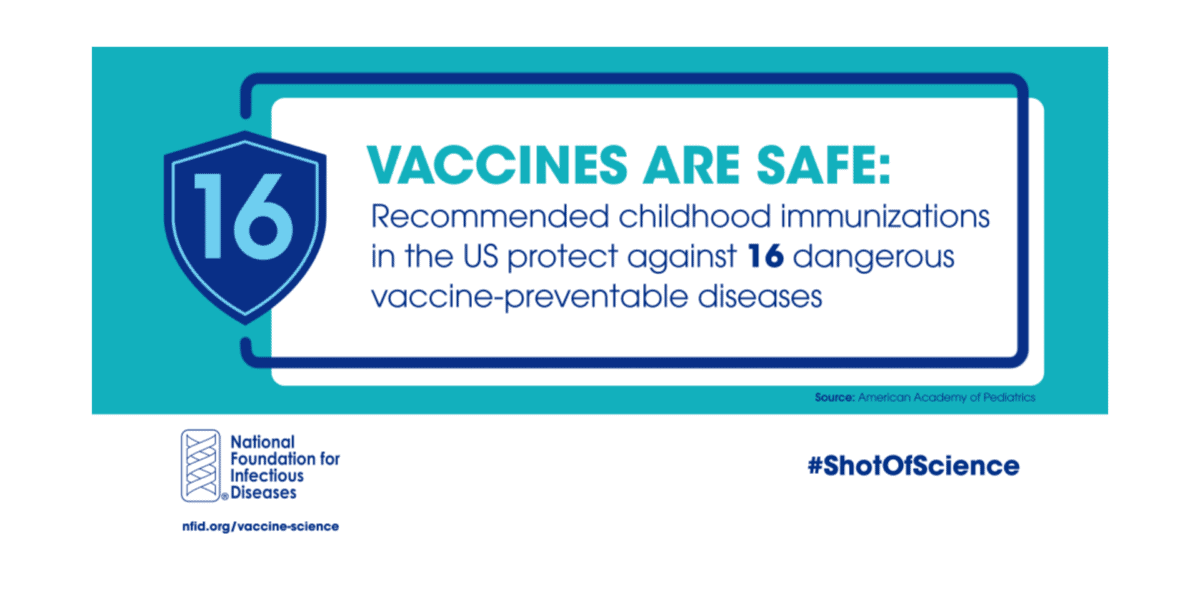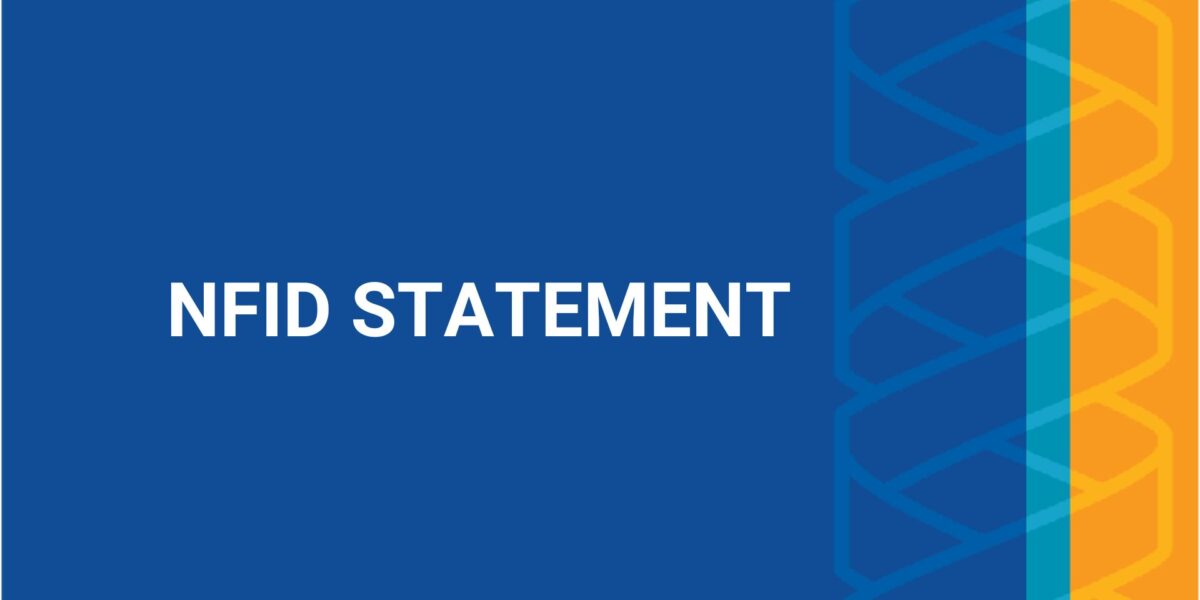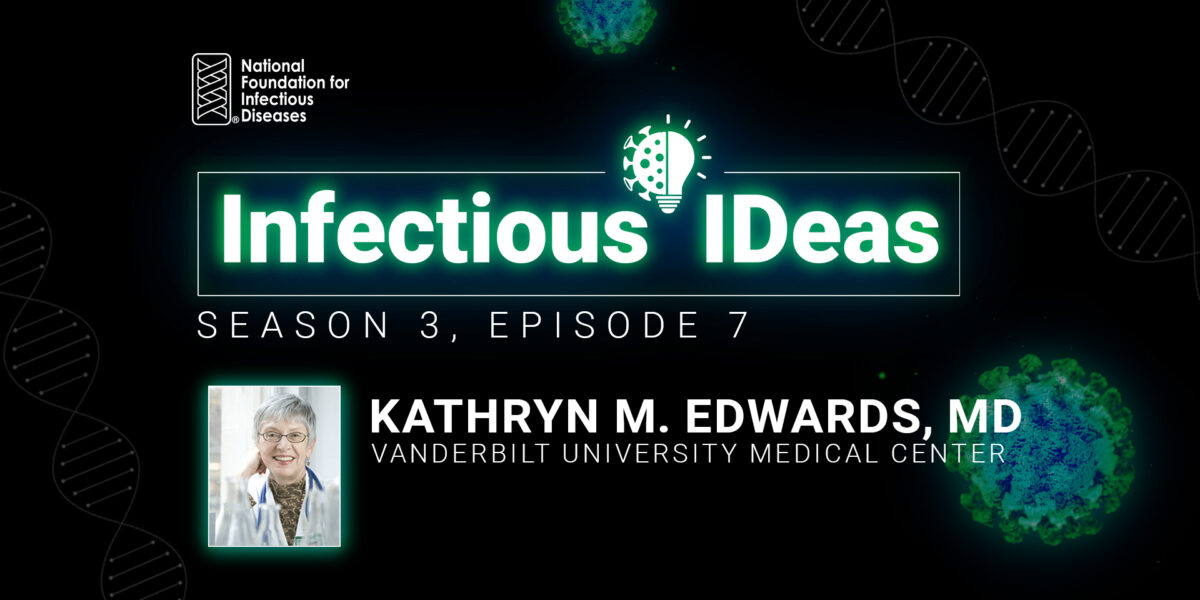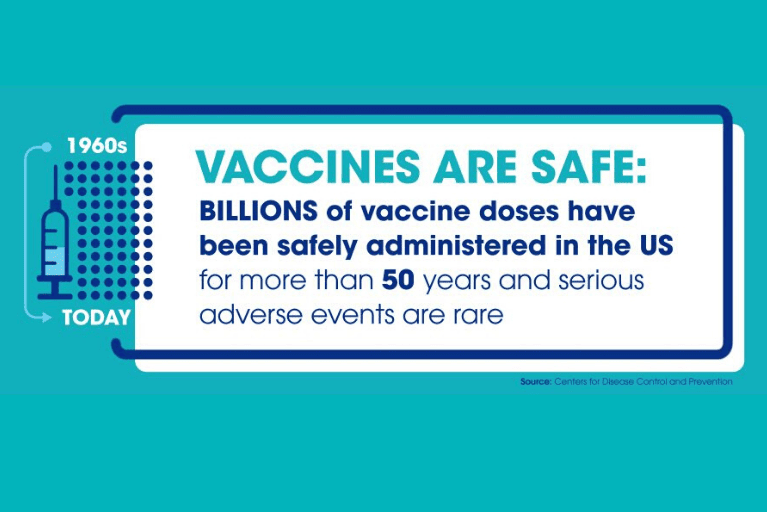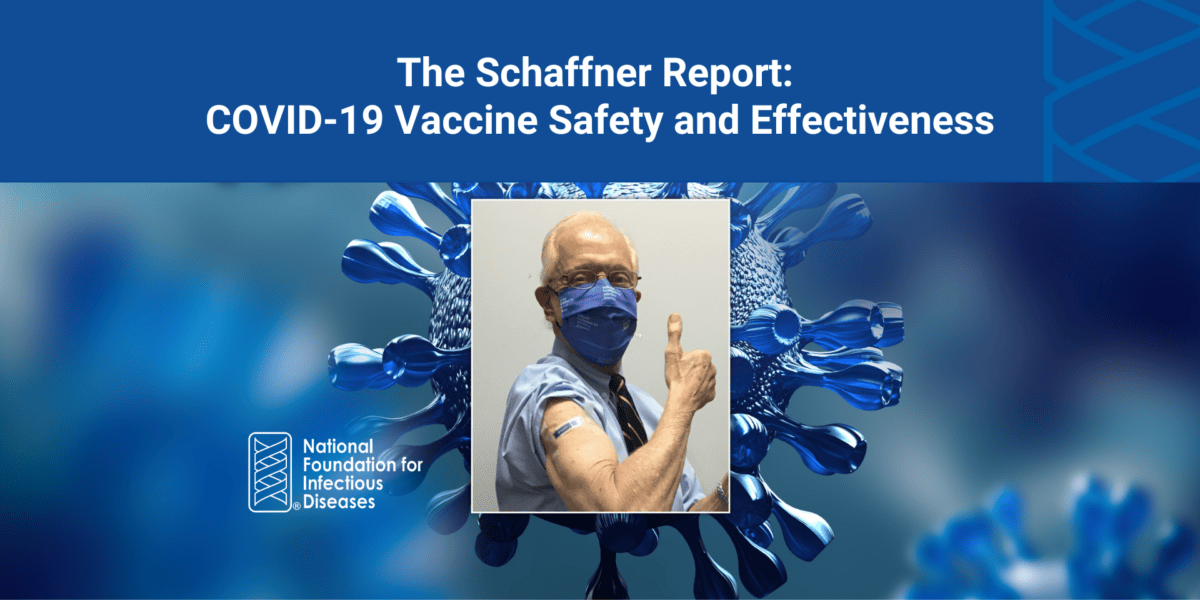A Shot of Science
Vaccines are among the most significant achievements in public health. Since 1924, childhood vaccinations have prevented more than 100 million cases of serious disease.
All vaccines used in the US are required to go through extensive safety testing before they are licensed by the US Food and Drug Administration (FDA) or recommended for widespread use.
After a vaccine is licensed, FDA and the Centers for Disease Control and Prevention (CDC) work with healthcare professionals to monitor the safety of vaccines, including any adverse events, especially rare events not identified in pre-licensure study trials. There are four systems in place in the US to monitor the safety of vaccines after they are licensed and used among the public, and new systems have been established to help monitor vaccines for COVID-19. These systems can monitor known side effects and detect rare side effects that may not have been identified during clinical trials.
One of the systems used to monitor the post-licensure safety of vaccines in the US is the Vaccine Adverse Event Reporting System (VAERS). VAERS accepts reports from healthcare professionals, vaccine manufacturers, and the general public and receives more than 25,000 reports per year, compared with millions of vaccine doses administered.
#ShotOfScience Campaign
NFID developed a #ShotOfScience campaign to share tools and resources on the history and science of vaccines. Campaign materials include sample social media posts and animated graphics.
The National Academies of Sciences, Engineering, and Medicine has also compiled extensive information about vaccine safety.
Updated May 2022
Sources: Centers for Disease Control and Prevention, Department of Health and Human Services, National Academies of Sciences, Engineering, and Medicine
Related Resources
NFID Statement on AAP Childhood Immunization Schedule
The National Foundation for Infectious Diseases (NFID) endorses the American Academy of Pediatrics evidence-based recommendations to protect children from vaccine-preventable diseases
NFID Statement on mRNA Technology
Restricting specific vaccine technologies would slow potentially lifesaving research and could discourage investment in future vaccine development
A Lifelong Champion of Vaccine Safety—Kathryn M. Edwards, MD
S3, E7: Kathryn M. Edwards, MD, shares her journey from a budding chemist to a trailblazer in the prevention of pediatric infectious diseases and an advocate for ensuring vaccine safety and efficacy in the US …

